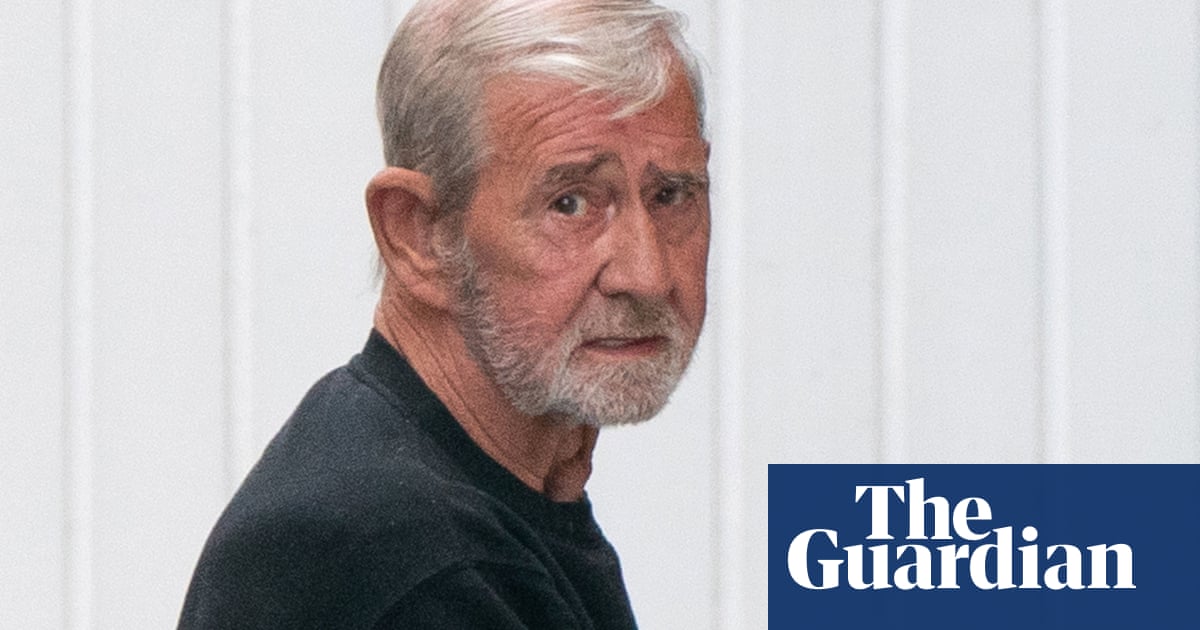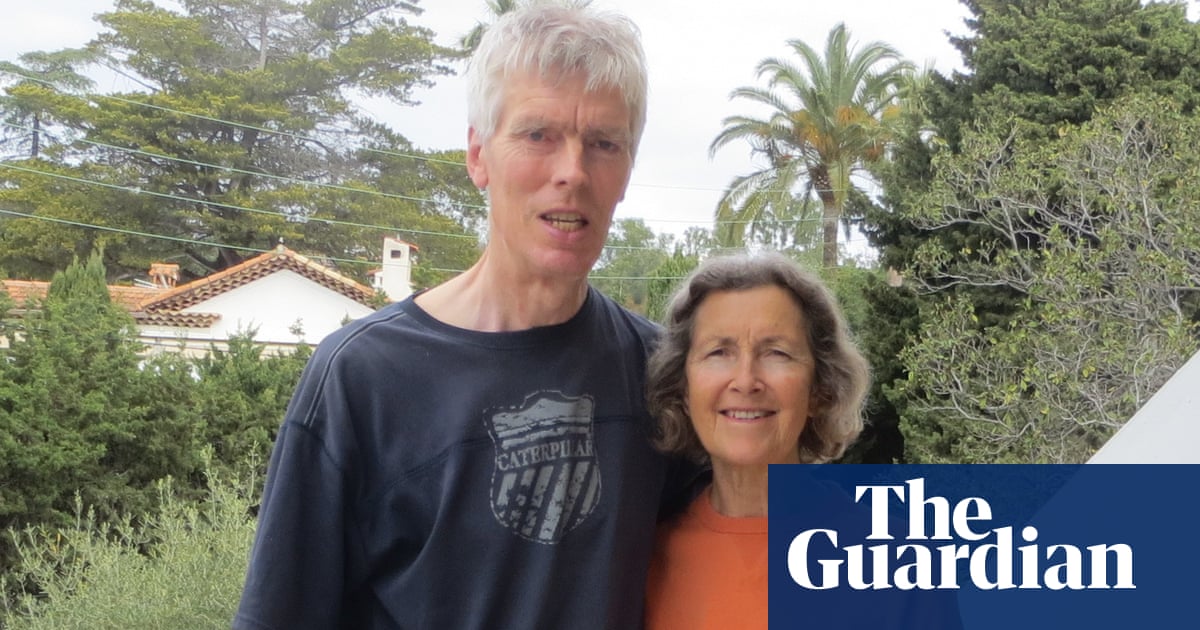
A euthanasia case that has gripped Cyprus for more than a year has entered its final phase as a British pensioner accused of murdering his cancer-stricken wife told how she “begged” him to end the excruciating pain that made her life unbearable.
David Hunter had waited a long time to have his day in court and in electrifying evidence before a three-member tribunal in Paphos on Monday, the 76-year-old described the circumstances that he said led him in the run-up to Christmas 2021 to fatally smother his wife, Janice, his teenage sweetheart and the woman he had loved for more than half a century.
He said the decision had been harrowing, he had hoped there would be good news that would stop her pleading with him to take her life, but once the deed was done, Janice was finally at peace.
“For six weeks, every day, she begged me,” the former miner told the district court in Paphos, a resort town in the island’s south-west that is popular with British expats.
“I would never have helped her end her life if she hadn’t begged me,” he said, his voice cracking as he recalled the moment he took her head in his hands and blocked her mouth and nose, pressing hard until, drained of oxygen, her face turned grey. “I didn’t want to. I had lived with her for 57 years. She wasn’t just my wife. She was my best friend,” he said.
The Briton, who stands accused of premeditated murder in a place where euthanasia is vehemently opposed by the Orthodox church, told the court of his struggle to persuade the 74-year-old “to give it time” in the hope she would stop pleading with him to end a life destroyed by the devastating effects of leukaemia.
“I had no interest in killing her,” said the grandfather, who has spent almost 18 months sharing a cell with 12 other men in an overcrowded prison in Nicosia, the capital. “I hoped that something would happen, something good.” But in the six weeks prior to her death, Hunter said, his wife became progressively more desperate.
For more than three years, he said, the side-effects of injections and then blood transfusions had kept her confined to the couple’s rented maisonette in Tremithousa, a village in the hills above Paphos. She was forced by incessant diarrhoea to wear nappies, an indignity of which she was especially ashamed, he said.
With the pandemic exacerbating problems with access to doctors and medicines, days were often punctuated by visits to the hospital where Janice had also undergone laser surgery to remove cancer on her face and had interventions on her knees, foot and collarbone. In the days before her death, the couple slept on leather easy chairs in their sitting room because Janice was too weak to move or walk.
“She was sick of all the treatment, she was sick of life … she was full of pain,” said Hunter as he sobbed and wiped tears from his face. “I don’t remember a lot of the last day. I went to make a cup of coffee and she started crying. The next thing I knew I put my hands on her … when it was finished, she was a grey colour. She didn’t look like my wife, and it was the first time I cried in many years.”
Hunter, who tried to kill himself soon after, has never denied his role in his wife’s death. When police rushed to the villa, alerted by his brother William, who himself had been informed about the incident by David, the Briton was quick to confess, telling a police officer he had “killed Janice to save her”.
But the lack of a written note or any other evidence has been pivotal in the court deciding that Hunter may have acted on his own accord, with judges rejecting a defence plea to reduce the charge from premeditated murder to manslaughter.
Hunter acknowledged he should have made clear he had “helped” Janice end her life, in what in other EU member states would be considered assisted suicide. Bristling at the suggestion that his wife had put up resistance, he said her head remained still throughout the 15 minutes it took to end her life – the time needed to ensure she did not suffer brain death and fall into a vegetative state.
During a dramatic day of proceedings, tensions rose as the state prosecutor Andreas Hadjikyrou contended that Hunter had taken the decision to end his wife’s life in a way that was unduly painful and cruel.
“I put it to you that you had decided to kill your wife, that there was no consent between you, that you had decided how to do it but had not decided when to do it,” said the prosecutor, telling the court that it was vital no precedent was set.
As the fiery exchange unfolded, the mild-mannered Briton angrily responded: “The last thing I wanted was to take her life. That is his idea not mine. She was lying there in pain and there was nothing I could do about it.”
The couple, originally from Ashington in Northumberland, had retired to Cyprus, leaving their only child, Lesley, in the UK. After 41 years working in the Northumberland mines, David Hunter had hoped it would be the start of a dream life abroad.
The case has become a cause célèbre in Cyprus, with euthanasia campaigners hoping it will help change “outdated” views over the right to die.
Speaking outside the courthouse, the British barrister Michael Polak, who heads Justice Abroad, a legal aid group that helps UK citizens overseas, said Hunter had looked forward to “having the opportunity to tell his side of the story”.
“This has been a very long trial and David was pleased to tell people what had happened and why,” he said. “It is always hard for a person of his age to give testimony but he made clear there was no motivation, that he was continuously asked to end her life, which he did not want to do, and that he was in a long and loving relationship with his wife.”
The trial continues, with defence witnesses taking the stand next week before closing submissions are made and a verdict reached.












